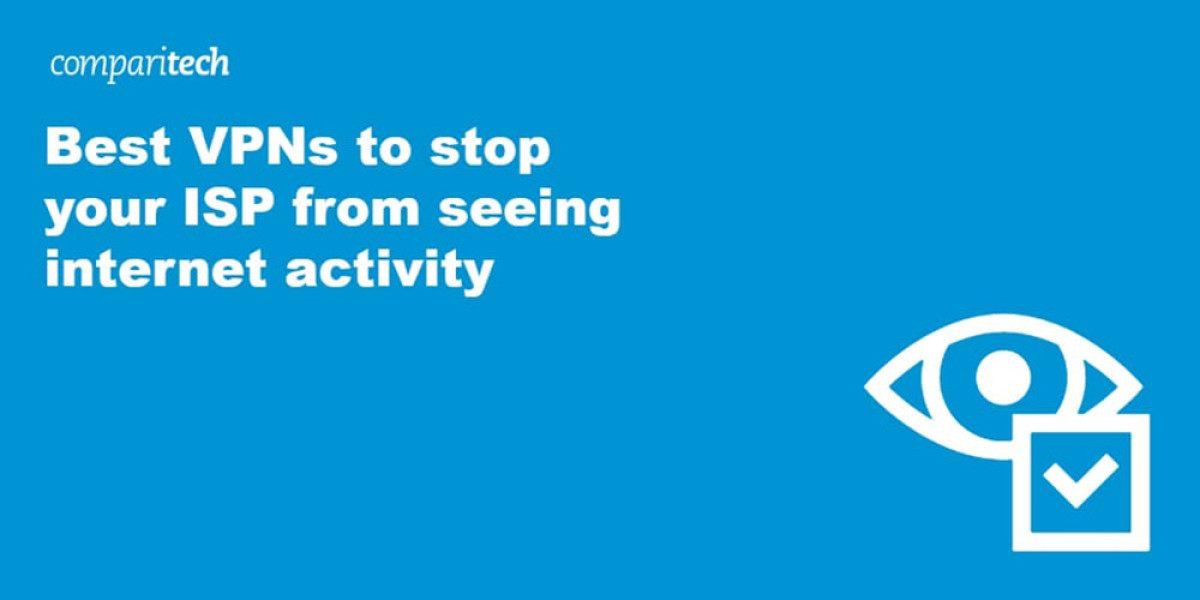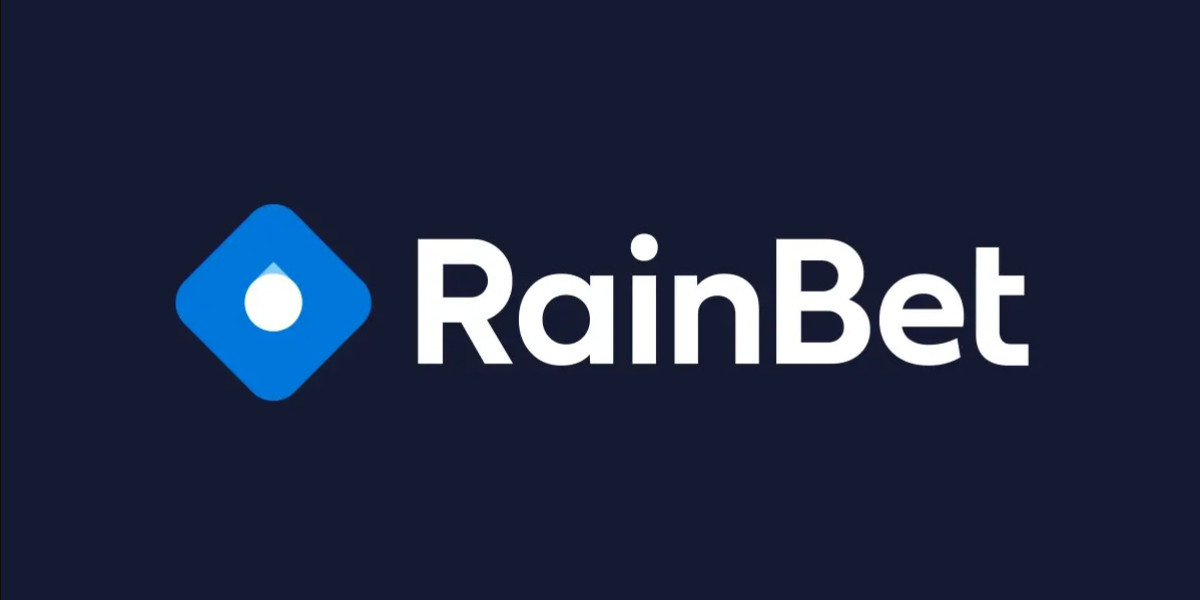Protecting Online Privacy
In the current era of digital connectivity, safeguarding your online privacy has become increasingly crucial.
Internet Service Providers (ISPs) in the U.S. have gained the ability to track and sell your online behavior, including the websites you visit, your email communications, and search history.
Recent changes in legislation, particularly the repeal of the FCC privacy regulations, have allowed major companies like Comcast and Time Warner Cable to exploit your browsing habits without obtaining your permission.
Consider the implications: every email, search, and personal detail, from your medical records to your lifestyle preferences, is susceptible to exposure. The reality is that with minimal oversight, these corporations could engage in increasingly intrusive monitoring.
But there is a solution! After thorough investigation and testing, we have pinpointed effective methods to protect your privacy online.
The two primary tools to prevent your ISP from tracking your internet usage are VPNs (Virtual Private Networks) and Tor. However, we strongly recommend using a VPN, as it provides a more user-friendly experience with better speed and privacy measures.
A VPN acts like a shield, encrypting your data and routing it through a secure server, effectively hiding your online footprint from ISPs and other entities.
This means that your ISP cannot see the websites you visit or the messages you send, offering you peace of mind as you navigate the web.
Take charge of your online privacy as we explore the evolving digital landscape and empower you with the necessary tools.
For those interested, NordVPN is currently offering a risk-free 30-day trial.
By signing up through the designated link, you can access the top-rated VPN for Windows without any limitations for a month.
Simply install it, and you can prevent your ISP from monitoring your online activities.
There are no hidden conditions—if you find that NordVPN doesn’t meet your needs, just reach out to customer support within 30 days for a full refund.
Now, let’s delve into a detailed overview of each VPN provider featured in our recommendations, but if you’re short on time, here’s a quick glance at our top picks:When it comes to safeguarding your online privacy from ISP tracking, choosing the right VPN is crucial. Here’s a revised list of top options that excel in protecting your internet activity.
NordVPN stands out as an exceptional choice, renowned for its impressive speed and robust privacy measures. It operates on a strict no-logs policy and offers a 30-day money-back guarantee, ensuring you can test it risk-free.
For budget-conscious users, Surfshark is an excellent alternative. It combines speed and flexibility, featuring a variety of security and privacy tools. Plus, it allows you to secure all your devices simultaneously.
IPVanish offers a unique advantage by managing its entire server network. With a commitment to user privacy, it maintains no logs or metadata, ensuring your online actions remain private. It also features DNS leak protection and allows unlimited connections, backed by 24/7 customer support.
ExpressVPN provides strong encryption and a suite of internet privacy features, adhering to a no-logs policy. It accommodates multiple devices and traffic types, along with a 30-day money-back guarantee.
CyberGhost enables connections for up to seven devices at once, coupled with a stringent no-logs policy to enhance your online anonymity.
StrongVPN may have robust security and privacy features, but its applications might not be the most user-friendly. Still, it adheres to a no-logs policy.
Private Internet Access is known for solid security practices and a strict no-logs approach, although some users may experience varying download speeds.
PureVPN is a dependable option that simplifies the process of maintaining online safety. With a vast network and applications for all major platforms, it provides 24/7 support and compatibility with popular streaming services.
Lastly, ProtonVPN offers a no-logs policy and advanced privacy features, boasting fast servers in over 80 countries, along with the capability to access stubborn region-locked content.
When selecting a VPN, it's essential to be cautious. Many providers, particularly free ones, may expose your information.
Our assessments focus on the top 70 VPNs, ensuring that only those that maintain anonymity and do not track user activity are included. We prioritize options that offer a full money-back guarantee, allowing for a risk-free trial.
Key criteria for evaluating VPNs include:
- Robust security with 256-bit AES encryption
- Availability of modern VPN protocols
- A strict no-logs policy with no exceptions
- Reliable speeds suitable for streaming and downloading
- Responsive customer support through live chat
- Fair pricing with a money-back guarantee
- Bonus points for router compatibilityAfter thorough testing and analysis, we have evaluated the key features of the leading VPN services available.
If you’re looking for detailed reviews, we recommend starting with NordVPN, which stands out as our top recommendation for safeguarding your online privacy against ISP tracking.
To safeguard your online activities from your Internet Service Provider (ISP), utilizing a Virtual Private Network (VPN) is essential.
A VPN encrypts your internet traffic, ensuring that your data remains private and concealed from prying eyes.
Here’s a step-by-step guide on how to effectively hide your browsing habits from your ISP using a VPN:
- First, choose a reliable VPN service. Our top recommendation is NordVPN.
- Next, download the VPN application suitable for your device.
- After installation, launch the app and select the desired server location.
- Click the connect button and wait for the connection to establish.
- If you face any connectivity issues, consider clearing your browser's cookies and cache.
Once connected, your ISP will no longer have access to your online activities, including your search queries and downloads.
It’s crucial to select a VPN that offers robust leak protection, which our recommended services provide.
We have rigorously evaluated the top 8 VPNs to combat ISP tracking. Below, you will find detailed analyses of each service in our shortlist, helping you make an informed choice for your privacy needs. Jan 2025 Prevents ISP Tracking Tested Jan 2025When it comes to safeguarding your online privacy and preventing your Internet Service Provider (ISP) from tracking your activities, selecting the right VPN is crucial.
NordVPN stands out as a premium option, headquartered in Panama. It provides impressive value with the ability to connect up to six devices simultaneously on a single standard plan. What truly sets NordVPN apart is its unwavering commitment to a strict no-logs policy, coupled with robust encryption methods. The VPN employs 256-bit encryption through OpenVPN and utilizes 2,048-bit Diffie-Hellman keys for secure key exchange.
One of the standout features of the NordVPN application is its process-specific kill switch. This function allows users to designate particular applications that should be blocked from transmitting any unencrypted data if the VPN connection is compromised. Furthermore, NordVPN offers an extensive selection of servers, including specialized options for enhanced privacy, such as Tor over VPN and Double VPN configurations.
The VPN is compatible across multiple platforms, including Linux, Windows, macOS, iOS, and Android. If you're traveling internationally, NordVPN can help bypass geographical restrictions, making it possible to access streaming services like Netflix and Hulu without hurdles.
Key highlights include:
- A strict no-logs policy
- Consistent secure and encrypted connections
- Protection against IP leaks, aided by the DNS kill switch
- Most applications feature a specific kill switch for individual processes
- Exceptional speed performance
- Slightly longer connection times on desktop applications
Overall, we rate NordVPN a perfect 5 out of 5.
For anyone seeking the best VPN to avoid ISP tracking, NordVPN emerges as the premier choice. Its expansive server network, lightning-fast speeds, and excellent ability to unblock content make it a standout provider. Additionally, it offers a risk-free 30-day money-back guarantee, ensuring peace of mind for new users.
Explore our comprehensive review of NordVPN for more insights. Prevents ISP Tracking Tested Jan 2025Users of Surfshark can opt for OpenVPN or IKEv2 protocols for their connections. In regions like China or the UAE, Shadowsocks is also available. All data transmitted is safeguarded by 256-bit AES encryption, 2048-bit DHE-RSA keys, a kill switch feature, and safeguards against IPv6, DNS, and WebRTC leaks.
Surfshark operates from the British Virgin Islands, which means it is not obligated to keep logs of user activities. As a result, Surfshark maintains a strict no-logs policy . For any assistance, 24/7 live chat support is at your disposal.
The VPN is compatible with Linux, macOS, Windows, iOS, and Android platforms. Additionally, it can be manually set up on supported home routers.
-
Excellent speed for various online tasks
-
Unlimited device connections
-
Robust security and privacy measures
-
Compared to others, it has a smaller server network
-
Occasionally experiences slower server connections
Rating: 5 out of 5
Best Value Option: Surfshark stands out as an excellent choice for budget-conscious users wanting to secure multiple devices since there’s no limit on connections. It combines high-speed performance with a comprehensive set of security features, a no-logs commitment, and a 30-day money-back guarantee.
Explore our complete review of Surfshark for more details. Prevents ISP Tracking Tested Jan 2025IPVanish stands out as a unique VPN provider because it owns its own servers rather than renting them. This ownership grants it enhanced control over server access, ensuring better security for users.
When users connect, they benefit from OpenVPN protocol featuring robust 256-bit AES encryption, SHA512 authentication, and ephemeral 2,048-bit RSA keys, all with perfect forward secrecy.
Importantly, IPVanish adheres to a strict no-logs policy, meaning it does not retain any user traffic or metadata. Consequently, even though it operates from the United States, it has no user information to disclose.
Additionally, the VPN includes built-in DNS leak protection and offers a kill switch that can be activated via the settings.
Compatible applications are available for various platforms including Windows, macOS, iOS, and Android.
Key features include:
- Continuous encryption for secure communications and data
- Built-in DNS leak protection and kill switch
- High-speed servers ideal for streaming and downloading
- Strict no-logs approach
- Limited options for anonymous payment
- Accessibility issues in China
Overall, we rate IPVanish 5 out of 5.
It is known for its fast and dependable service, bolstered by an extensive server network that ensures high speeds without congestion. The security and privacy features are commendable, although the absence of live customer support is a drawback. IPVanish also offers a 30-day money-back guarantee for users.
For a more comprehensive overview, check out our detailed IPVanish review. Prevents ISP Tracking Tested Jan 2025ExpressVPN operates from the British Virgin Islands, ensuring a robust privacy policy as they are not obligated to store user data.
Their service features top-tier encryption, utilizing the OpenVPN protocol paired with 256-bit AES encryption, SHA-512 authentication, and 4,096-bit RSA keys that guarantee perfect forward secrecy.
To protect users from ISP tracking, ExpressVPN employs proprietary DNS servers that funnel all DNS queries through the VPN. This system allows multiple users to share a single IP address, making it extremely difficult to trace online activities back to an individual.
Additionally, the ExpressVPN application has a "Network Lock" feature that pauses internet traffic if the VPN connection drops, ensuring continuous protection until the connection is restored.
The app is compatible with various platforms, including Windows, Mac, iOS, Android, Linux (command-line), and specific Wi-Fi routers.
ExpressVPN excels in bypassing geographical restrictions on content, such as Netflix and Hulu, making it a preferred choice for users traveling internationally.
Key highlights include:
- Headquarters in the BVI, with no logging of user data required
- Strong emphasis on security and privacy for users
- Protection against DNS leaks with shared IP addresses and no traffic logs maintained
- High-speed servers optimized for streaming HD content
- 24/7 customer support via live chat
- Slightly more expensive than some competitors
- Limited customization options
Rating: [Your Score] out of 5
For secure browsing, ExpressVPN prioritizes user privacy, providing military-grade encryption and a user-friendly interface with fast connection speeds. It is particularly effective at accessing geo-restricted platforms, and all subscriptions come with a 30-day money-back guarantee.
Check out our comprehensive review of ExpressVPN for more insights. Prevents ISP Tracking Tested Jan 2025
VPNs for Online Privacy
CyberGhost provides a user-friendly solution for secure internet browsing.
This VPN prioritizes user privacy by not storing any personally identifiable information.
It employs robust security measures, including 256-bit AES encryption, protection against WebRTC, DNS, and IPv6 leaks, along with 2048-bit DHE-RSA keys.
Additionally, every version of the app includes a kill switch to enhance safety.
Beyond these essential features, CyberGhost incorporates an automatic ad-blocker, a malware scanner, and the option to connect via a random port.
This capability allows users to bypass restrictions on networks that typically block HTTPS traffic.
All security features are pre-configured and activated by default , ensuring ease of use.
CyberGhost is compatible with various operating systems, including Windows, iOS, macOS, Linux, and Android, and can be manually set up on select internet routers.
Here are some highlights of CyberGhost:
- Extensive security features available
- Option to upgrade to static IP addresses
- No traffic logs maintained
- Supports up to seven simultaneous connections
- Accepts Bitcoin as payment
- Limited advanced features may deter power users
- Reliability issues in regions like China or the UAE
Our rating: 5 out of 5
For those new to VPNs, CyberGhost is an affordable yet powerful option, delivering strong security, privacy protections, and impressive speeds.
Plus, it offers a 45-day money-back guarantee for added peace of mind.
Check out our complete review of CyberGhost for more details. Prevents ISP Tracking Tested Jan 2025StrongVPN, a US-based service, is committed to user privacy as it maintains a strict zero-log policy regarding user activities.
For optimal security, we suggest that users utilize protocols such as L2TP, SSTP, or OpenVPN, while steering clear of the outdated PPTP option. Despite some reservations about its Windows application, StrongVPN employs robust 256-bit encryption along with SHA-512 authentication methods.
This VPN provider takes pride in owning its servers rather than leasing them, which enhances security. Additionally, it offers features like DNS leak protection and a kill switch for added safety.
Users can access StrongVPN through applications compatible with Windows, macOS, iOS, and Android devices.
Key features include:
- High-level encryption and authentication protocols
- Built-in kill switch and DNS leak protection, with a strict no-logs policy
- Supports torrenting and is effective in bypassing restrictions in China
- Operates and manages all of its servers
- Some users may find the minimalist interface somewhat restrictive
- Testing revealed satisfactory speeds, though not exceptional overall
Overall rating: out of 5
StrongVPN is recognized for its reliability in overcoming geo-blocking and maintaining a dependable server network. It excels in privacy protection, with no retained browsing logs and solid security measures. However, manual setup might pose a challenge for some users. A 45-day money-back guarantee is also offered.
For a comprehensive analysis, check out our full review of StrongVPN.
Private Internet Access (PIA), based in the United States, is a VPN service that prioritizes user privacy by maintaining a strict no-logs policy, which they have substantiated with legal documentation.
Users can customize their VPN experience by selecting their preferred protocol and encryption level.
For optimal security, the recommended setup includes OpenVPN with AES-256 encryption, SHA256 for authentication, and RSA keys with a length of 4096 bits, ensuring perfect forward secrecy. PIA manages its own servers, and the application features DNS leak protection and a kill switch, which safeguards against any data exposure to the unencrypted ISP network.
The service offers applications compatible with multiple platforms, including Windows, macOS, iOS, Android, and Linux.
Key Features: - Adheres to a strict no-logs policy, with DNS leak protection and an active kill switch - Strong encryption guarantees secure and private connections - Operates over 3,200 servers - Video streaming speeds may vary - Users might encounter troubleshooting discussions in community forums - Other VPN services in this comparison may perform better for unblocking popular streaming platforms
Rating: out of 5
With a rigorous no-logs policy, PIA is recognized for its robust security, affordability, and comprehensive features, along with commendable customer support. However, users should note that connection speeds can be unpredictable. A 7-day money-back guarantee is also available.
For a complete review, explore our detailed analysis of PIA. prevents ISP tracking Tested Jan 2025For those seeking to safeguard their online privacy effortlessly, PureVPN stands out as an excellent option.
This VPN employs state-of-the-art encryption through both OpenVPN and WireGuard protocols, effectively preventing ISP tracking.
It also safeguards against IPv6 and DNS leaks while featuring a kill switch that ensures you remain protected even if your connection drops unexpectedly.
Notably, only Plus and Max subscribers can utilize the tracker-blocking feature, which we believe should be accessible to all users.
Additionally, this VPN is among the few that still functions in China, a testament to its reliability.
When it comes to performance, PureVPN boasts an impressive network of 6,000 servers across 65 countries, achieving average speeds near 400 Mbps.
It can easily bypass geo-restrictions for various streaming services like Netflix, BBC iPlayer, and Amazon Prime Video.
There are no restrictions on P2P activities, bandwidth is unlimited, and the provider adheres to a strict no-logging policy.
Users can connect up to 10 devices simultaneously and have access to live chat support for any inquiries.
PureVPN applications are compatible with iOS, macOS, Windows, Linux, and Android systems.
Moreover, the provider offers detailed setup guides for a wide array of router firmware.
Key highlights include:
-
Remarkable speed consistency
-
Strong commitment to privacy
-
High flexibility with multiple device connections
-
Tracker-blocking feature limited to specific plans
-
Potential lack of advanced options for seasoned users
Our rating: out of 5
Regarding traffic concealment, PureVPN prioritizes your privacy by obfuscating your data if it detects you are in a region with severe censorship.
It provides impressive performance, dependable servers, and a 31-day money-back guarantee with each subscription.
For further insights, consult our comprehensive review on PureVPN.
When it comes to safeguarding your online presence, ProtonVPN stands out with its robust security measures.
It employs unbreakable encryption and features like a kill switch, DNS and IPv6 leak protection, and automatic tracker-blocking.
With approximately 3,800 servers spread over 85 countries, including specialized multi-hop secure core servers for enhanced privacy, ProtonVPN ensures a vast and secure network.
This VPN operates on a strict no-logs policy, which has been verified through independent audits.
Additionally, it supports port forwarding and split tunneling, though these features may not be available on every platform.
We believe ProtonVPN is one of the most adaptable options available today.
It offers exceptional performance, supports torrenting, and is compatible with a variety of geo-restricted sites.
Customer support is accessible around the clock, and the website features a comprehensive help section for common inquiries.
With the ability to connect up to 10 devices simultaneously, users can protect all their essential gadgets at once.
For those seeking enhanced privacy, payments can be made using Bitcoin or cash.
ProtonVPN provides dedicated applications for Android, iOS, Windows, macOS, and Linux, and it is compatible with most routers, although manual setup might be required.
Here are some highlights:
-
Extensive and fast server network
-
Excellent at maintaining user privacy
-
Strong emphasis on security features
-
Secure core servers may have slower speeds
-
Port forwarding is limited to Windows users
Our rating: out of 5
For advanced users, ProtonVPN allows customization of security settings to meet individual requirements.
This no-logs VPN offers superior speed and reliable streaming capabilities, coupled with friendly and knowledgeable customer support.
All subscription plans come with a 30-day money-back guarantee.
Finding the right VPN can be challenging due to the multitude of options available, and not all services can deliver the privacy and security necessary to shield you from your ISP.
At Comparitech, we utilize a precise VPN testing approach to recommend only those services that exhibit high reliability and provide essential privacy features.
We also conduct checks for IP and DNS leaks to confirm that the VPN effectively conceals your browsing activities from your ISP.When searching for the ideal VPNs to safeguard your internet activities from ISP surveillance, several crucial features were considered:
-
No Logging Assurance : To ensure your online privacy is maintained both now and in the future, it's imperative that a VPN service does not keep any logs of your activities. The recommended VPNs adhere to strict no-log policies, meaning they do not store any identifiable information after your session, thus protecting you from potential government scrutiny.
-
Strong Encryption Standards : The security of a VPN connection greatly relies on the encryption it employs. Our selections utilize reputable protocols like OpenVPN, IKEv2, and WireGuard, which incorporate high-level encryption methods, including military-grade AES, ensuring that your data transmission remains secure.
-
Internet Kill Switch Feature : If a VPN connection unexpectedly fails, your internet traffic could be exposed to your ISP. This risk is mitigated by a kill switch, which automatically disconnects your internet access if the VPN drops, protecting your online privacy from being compromised.
-
Comprehensive Security Features : A valuable VPN should offer an extensive array of privacy and security options. The services highlighted in this guide include features like DNS leak protection, obfuscated servers, double-hop connections, split tunneling, and SOCKS5 proxy, among others. Each VPN provides a unique set of functionalities, so review the details to find the best match for your requirements.
-
Cross-Platform Compatibility : For a VPN to be effective, it must be compatible with all your devices. The recommended services come with user-friendly applications and installation guides for a variety of platforms, including tablets, smartphones, Windows, Mac PCs, and even devices like Firesticks, smart TVs, and VPN-capable routers.
-
Affordability : A quality VPN shouldn't have to be prohibitively expensive. While there are many costly options that may not deliver adequate privacy protection, our recommendations offer excellent value without overcharging. This ensures you receive the necessary privacy features at a reasonable price.
VPN Usage and Legal Implications
The implications of using a VPN largely vary based on your geographical location.
In most parts of the world, VPN usage is perfectly legal, and internet service providers (ISPs) generally do not mind if you utilize one.
While ISPs can detect that you are connected to a VPN, the encryption technology it employs ensures that the specific websites or services you access remain hidden from them.
However, in nations with stringent internet regulations, such as China, Iran, and Russia, the scenario is different.
In these regions, state-controlled ISPs may actively disapprove of VPN usage, especially where there is significant government surveillance.
Although VPNs aren't explicitly banned, many VPN services are blocked, making access challenging.
In rare instances, individuals have faced legal repercussions for using VPNs, primarily activists and journalists who challenge governmental authority.
It is vital to familiarize yourself with the legal landscape regarding VPNs in your country to avoid potential issues.
When using a VPN, your ISP cannot track your browsing history.
The encryption process obscures your internet activity, rendering any intercepted data indecipherable.
While your ISP may recognize that you are using a VPN, they cannot discern the details of your online activity.
In regions where VPNs are legally permitted, ISPs are typically indifferent to their usage.
Conversely, in areas with strict internet monitoring, ISPs may take a more active role in overseeing VPN traffic, potentially blocking connections or notifying authorities about their use.
Staying knowledgeable about local laws surrounding VPNs is crucial to navigate the legal landscape safely.
A critical consideration when choosing a VPN service is its logging policies.
If a VPN provider keeps logs of your online activity, it equates to the same invasion of privacy that you would experience with an ISP.
Such providers can exploit your data and monetize it through third-party sales without your consent.
This is why we advocate for VPNs that don’t maintain logs, particularly those that track traffic details, such as websites visited and any unencrypted communications.
Additionally, metadata logging poses a significant risk as it involves recording connection times, durations, and data usage.
The main concern arises if this metadata includes your real IP address or the VPN server’s IP, making it possible to trace your activities back to you.When you utilize a VPN, your Internet Service Provider (ISP) is unable to interpret the details of your internet traffic. They cannot determine the websites you visit or your online activities; all they can perceive is that encrypted data is being sent to a server.
While your ISP may identify that this server is linked to a VPN, it's important to note that VPNs are entirely legal in the U.S. and there are no known instances of American ISPs blocking or limiting access to these servers.
It's a common misconception that incognito mode or similar private browsing features can shield you from ISP surveillance. These modes mainly prevent websites from tracking you via cookies and stop your browser from storing your session history. However, they do not mask your IP address, which means your ISP can still monitor your web activity.
In the United States, ISPs are allowed to gather and distribute information regarding your internet actions, including your browsing history. They may or may not maintain records of the websites you access. Each time you visit a site, a DNS request is sent to your ISP, which they can log and retain indefinitely.
Depending on your state and the policies of your ISP, you might have the right to request information that your ISP has collected about you. For instance, residents of California can formally ask their ISPs for any personal data that is on file.
While Google encrypts its services with HTTPS, making your search queries secure, your ISP can see that you are accessing Google itself, but not the specific queries you enter. However, since Google often provides links to non-HTTPS sites in its search results, your ISP may be able to view the content from those sites.
Most likely, your ISP is tracking your online activities to some degree. The exact level of monitoring varies by ISP and local regulations. A good first step is to review your ISP's privacy policy and terms of service. You may also request a copy of the information they hold about you, but there are no guarantees regarding the extent of their tracking practices.
In the U.S., ISPs are not restricted from collecting information about your internet usage or sharing it with third parties. Therefore, it's prudent to operate under the assumption that your online behavior is being monitored and take appropriate protective measures.Your internet service provider (ISP) has the capability to monitor any unencrypted data that flows through your connection. This includes a wide range of information such as your browsing history, search terms, online purchases, email exchanges, downloads, geographical location, and streaming activities.
While a significant portion of online content is now secured with HTTPS (SSL encryption), ISPs can still track the websites you access and the timing of your visits.
The data collected by ISPs can be utilized for various purposes, including diagnostics, marketing strategies, and analytics. Furthermore, they might share or sell this data to external parties, which often consist of advertising networks, but may also include intelligence agencies, private investigators, or law enforcement entities.
Your ISP assigns you an IP address, which inherently means they have access to it. Consequently, they can disclose this information to government bodies or any other interested organizations upon request.
To safeguard your privacy, it is crucial to select a reliable VPN that does not maintain usage logs alongside your IP address. VPNs that keep logs are ineffective for protecting your privacy since they enable your online activities to be traced back to you.
In contrast to VPNs, proxies merely mask your IP address from the websites you access, creating the illusion that you are browsing from a different location. However, it is important to note that proxies do not offer the same level of privacy as a VPN’s encrypted tunnel. Therefore, opting for a VPN is vital to effectively prevent ISP tracking.
The main point to remember is that while proxies can disguise your location and prevent websites from identifying your IP address, they do not manage your DNS requests. This means they fail to hide your internet traffic's destination from your ISP.
ISPs monitor user activity online for a variety of reasons, one being the creation of a revenue stream. The actions of internet users can disclose significant insights about their lifestyles, jobs, income, aspirations, health, hobbies, religious beliefs, and political views.
Such data can lead to extensive surveillance capitalism, where companies leverage your information for marketing or combine various data points to draw highly accurate secondary conclusions about you. ISPs recognize the immense value of personal information gleaned from web browsing patterns, which is why they retain this data and may sell it to third parties when legally allowed (in the U.S., they can do this without user consent).In various nations, including the UK, Australia, and Brazil, internet service providers (ISPs) are mandated to maintain user browsing records due to government regulations.
These data retention laws require ISPs to hold onto your browsing history for periods ranging from 12 weeks to 2 years and furnish this information to authorities upon request.
This means that in regions with strict data retention, the government can easily monitor individuals who are not using a VPN, representing a significant invasion of privacy.
If you are not using a VPN, it's prudent to assume that your ISP may be tracking your online activities.
To deliver the internet service you subscribe to, ISPs must connect you to the websites you access, which inherently allows them to monitor every site you visit.
Depending on your location, ISPs may be obligated to keep detailed records of your online behavior, including metadata, for up to two years.
A good indicator of whether your ISP tracks your activities is to review the data retention laws specific to your region.
For instance, in the UK, ISPs are required to store comprehensive records of your online actions for a duration of 12 months, which can be accessed by multiple government bodies.
In the United States, the situation could be even more concerning, as ISPs are legally allowed to monitor your online behavior and are permitted to sell that information to third parties without your consent.
This creates an incentive for ISPs to gather as much data as possible on their users and profit from it by selling it to marketing firms and data brokers.
Additionally, your browsing history is vulnerable to being accessed through warrants, should government agencies like the NSA choose to obtain it.
It is evident that your data is at risk with your ISP, but the level of risk varies depending on the country and its privacy laws.
For example, in the US, ISPs can collect and sell your information without your approval, which constitutes a serious threat to your privacy.
Many countries enforce laws requiring ISPs to store logs of user data for several years.
This stored data is susceptible to unauthorized access if not safeguarded adequately and may be shared with government authorities upon request.
In nations with poor human rights records, the sharing of this data with authorities could pose significant threats to individuals.
Therefore, it is crucial to protect your online data from ISPs and other potential intruders by utilizing a VPN.
Dark Web Access Awareness
When you browse the dark web using the Tor browser, your Internet Service Provider (ISP) can observe that you are entering the Tor network.
While Tor effectively hides your online activities within the dark web, it does not completely obscure the fact that you are accessing it from your ISP's perspective.
However, your ISP cannot see the specific websites or the content you engage with on the dark web due to the encryption and the way your traffic is routed through several nodes before it reaches its intended destination.
It’s also crucial to note that in certain regions, just connecting to the dark web can arouse suspicion. This concern leads many users to opt for a VPN in conjunction with Tor.
By utilizing a VPN before connecting to Tor (known as Tor over VPN), you can mask your entry into the Tor network from your ISP. This additional layer of privacy ensures that neither your ISP nor any government entity can detect your access to the dark web.
ISPs keep logs of nearly all your online activities, including your searches, the websites you visit, and your downloads. However, they cannot access the actual contents of your downloads, as the data packets transmitted through your connection remain encrypted. They can identify the source and destination IP addresses along with the port numbers involved in the transfer.
What is a Netflix VPN and How to Get One
A Netflix VPN is a virtual private network specifically used to access region-restricted content on Netflix by connecting to servers in different countries. By using a Netflix VPN, users can bypass geographical restrictions and enjoy a wider variety of shows and movies that may not be available in their location. To use a Netflix VPN, one must choose a reliable VPN provider that supports streaming, create an account, install the VPN application, and connect to a server in the desired region before logging into Netflix.
Why Choose SafeShell as Your Netflix VPN?
If people want to access region-restricted content by using a Netflix VPN, they may want to consider the SafeShell VPN . One of the standout benefits of SafeShell VPN is its high-speed servers specifically optimized for Netflix streaming, providing a seamless, buffer-free experience even in high-definition. This is crucial because a netflix vpn not working often stems from outdated software that can't keep up with Netflix's detection mechanisms, but SafeShell VPN's cutting-edge technology ensures users can bypass these restrictions effectively.
Furthermore, SafeShell VPN offers the ability to connect multiple devices simultaneously, supporting up to five devices across various operating systems like Windows, macOS, and Android, among others. This flexibility allows users to enjoy their favorite shows on any device. The exclusive App Mode unlocks content from multiple regions, expanding the range of accessible entertainment. Coupled with lightning-fast speeds and top-level security through its ShellGuard protocol, SafeShell VPN not only enhances streaming experiences but also ensures your online privacy, making it a comprehensive solution for those seeking a reliable Netflix VPN.
A Step-by-Step Guide to Watch Netflix with SafeShell VPN
To enjoy Netflix content from various regions using SafeShell Netflix VPN , follow these steps:








